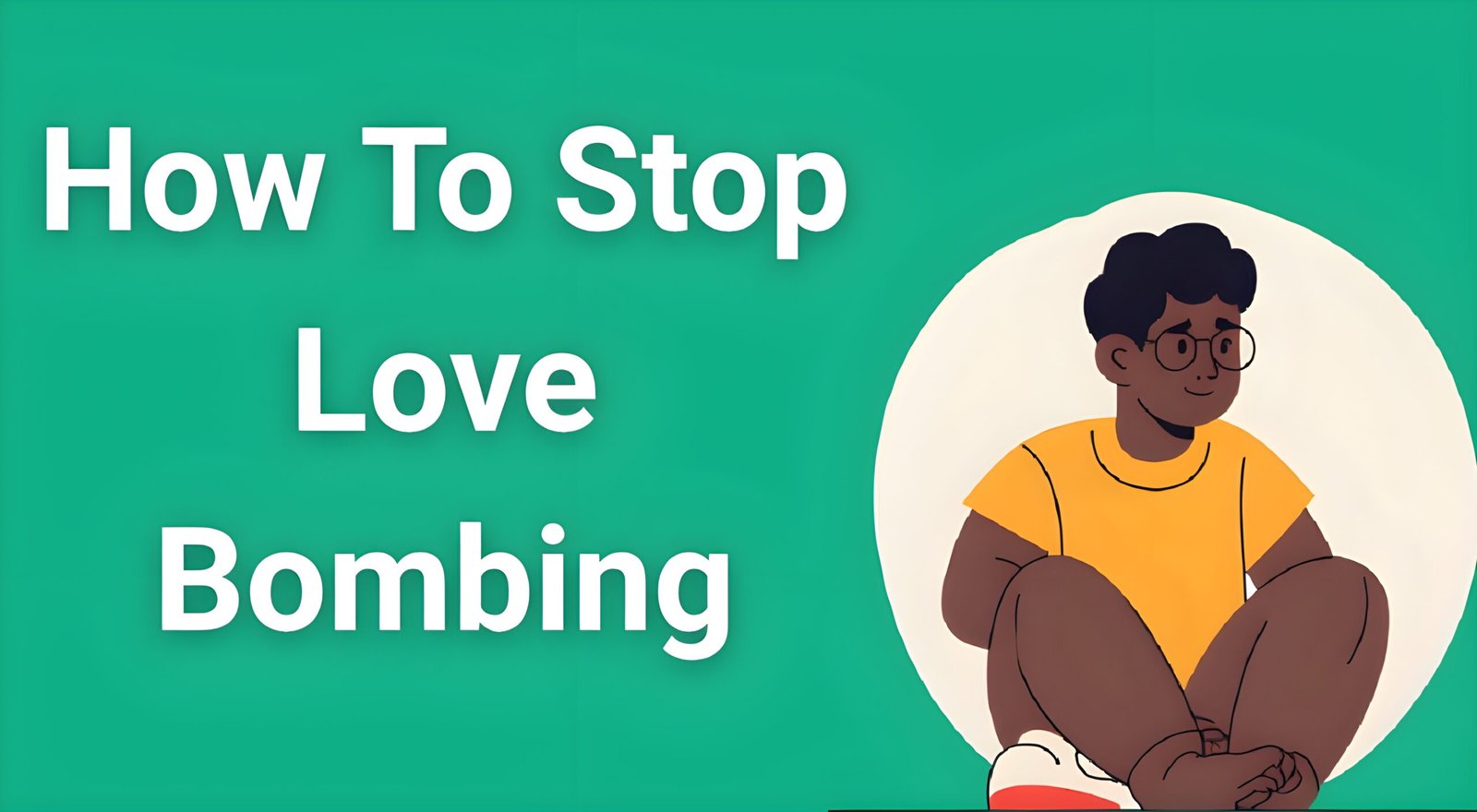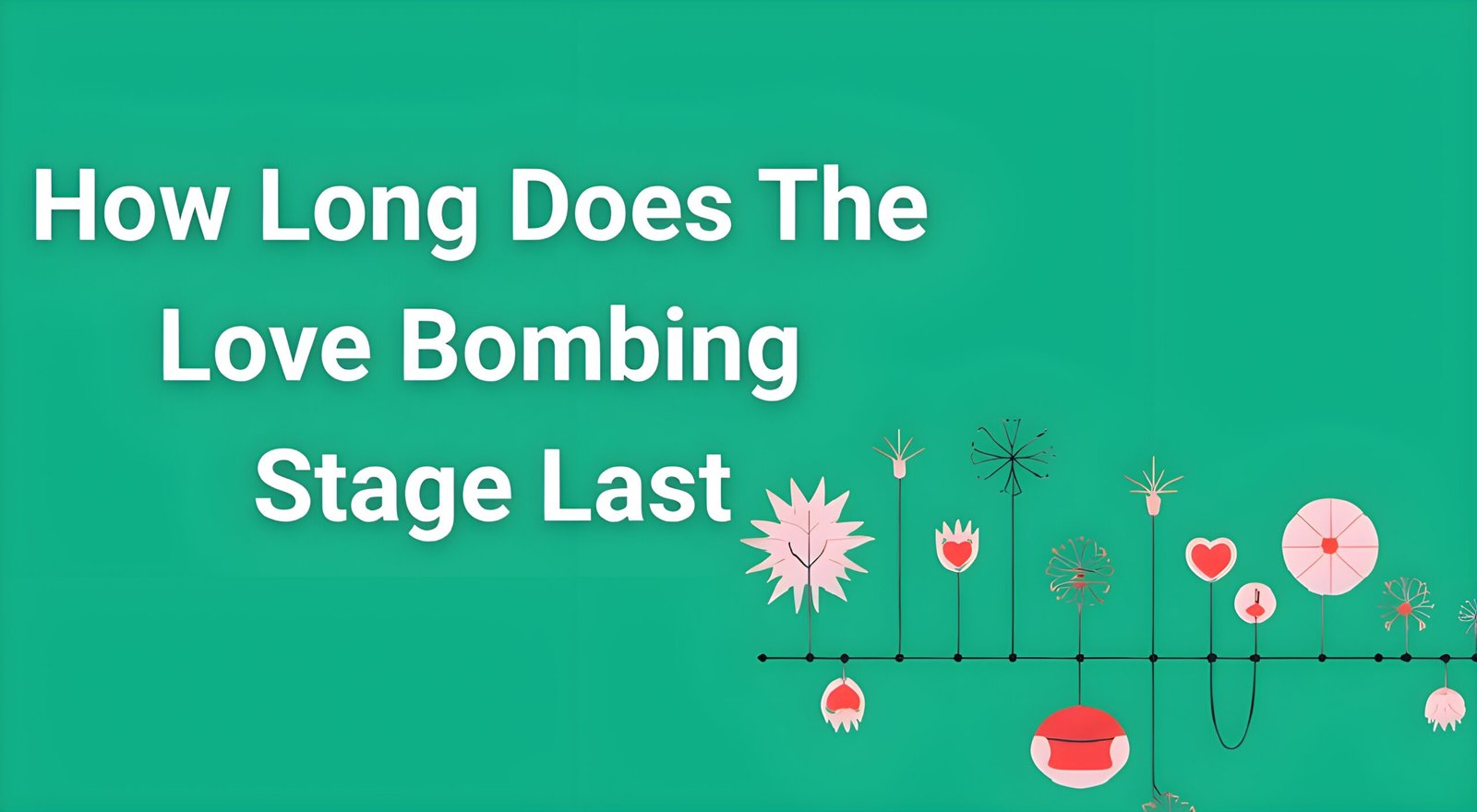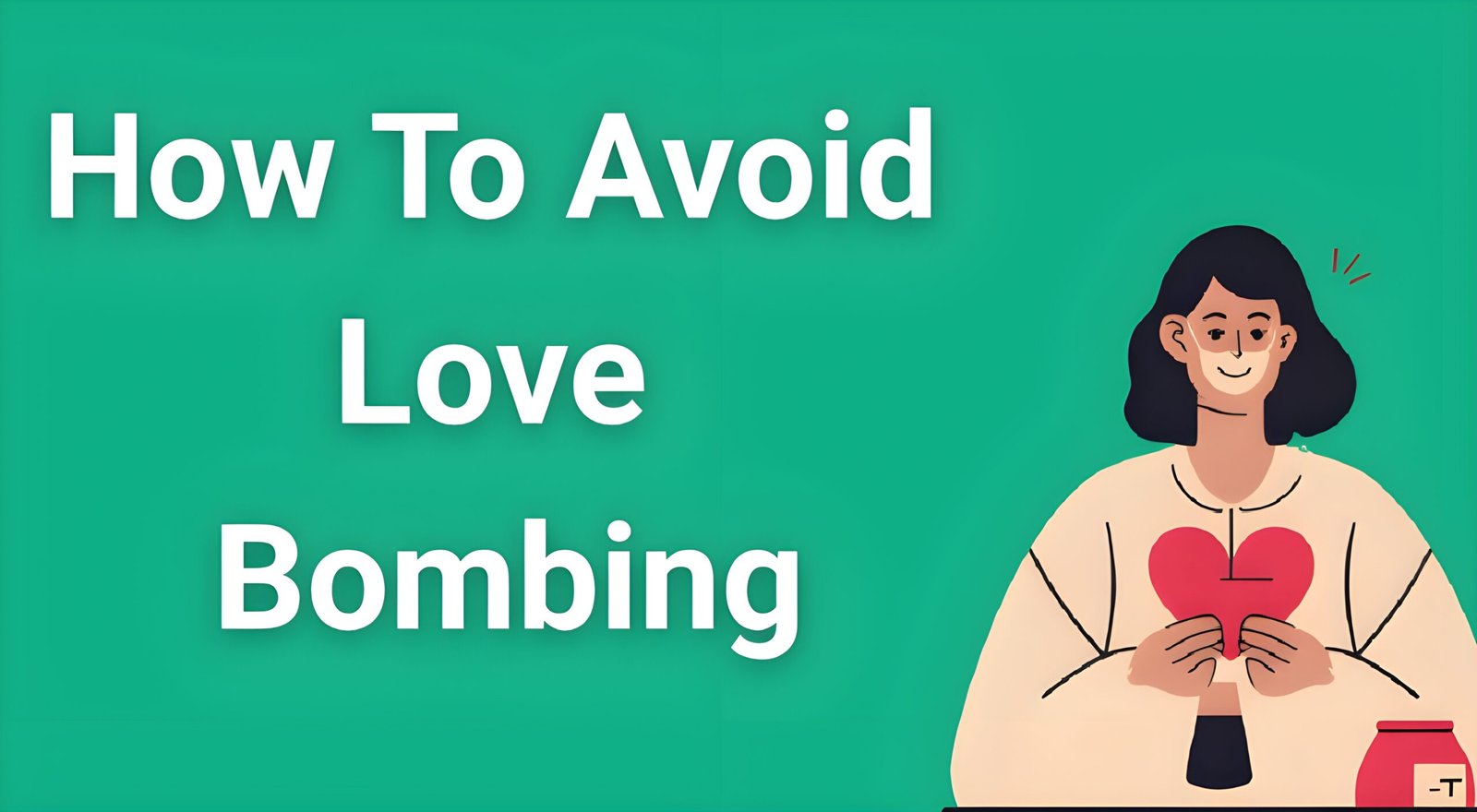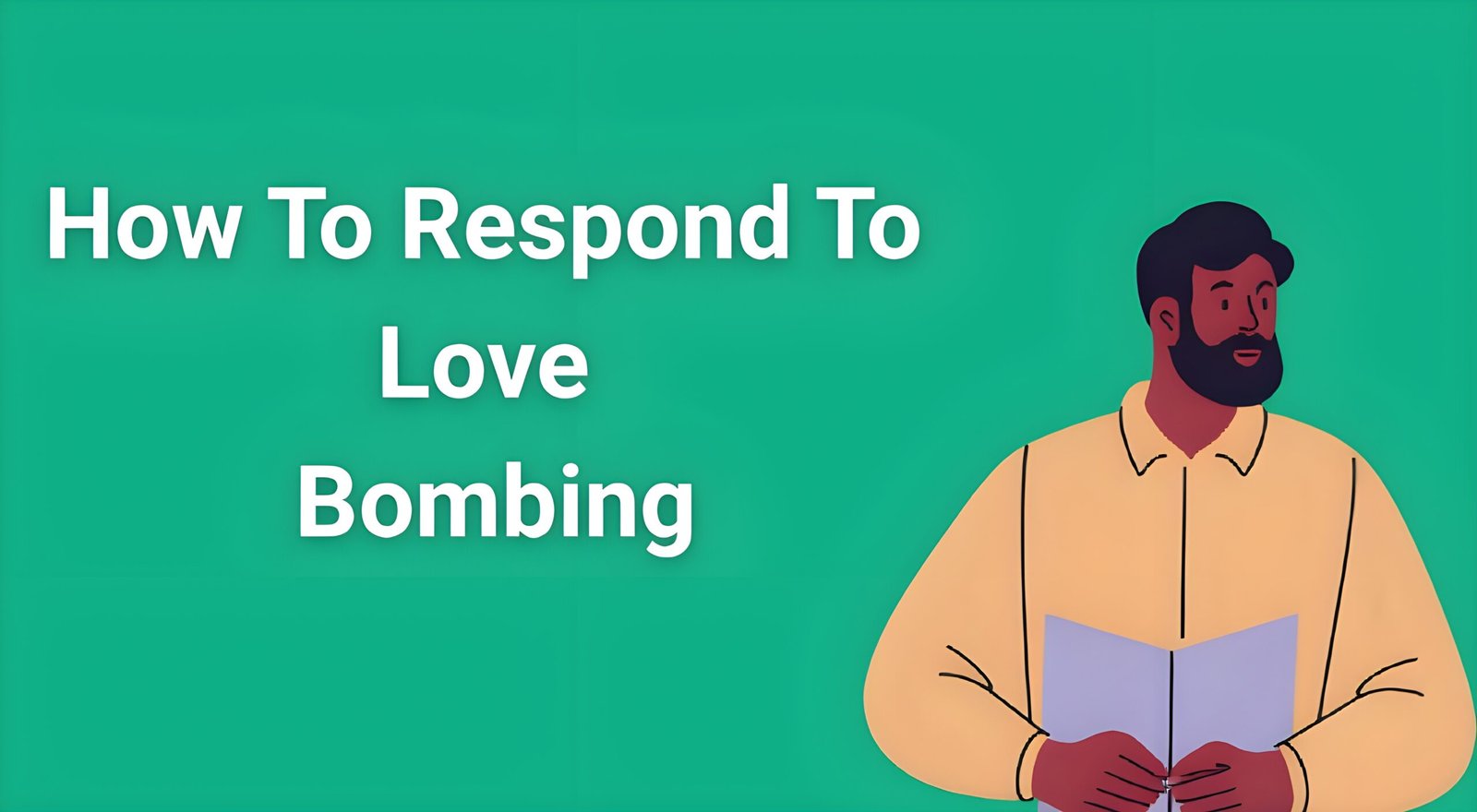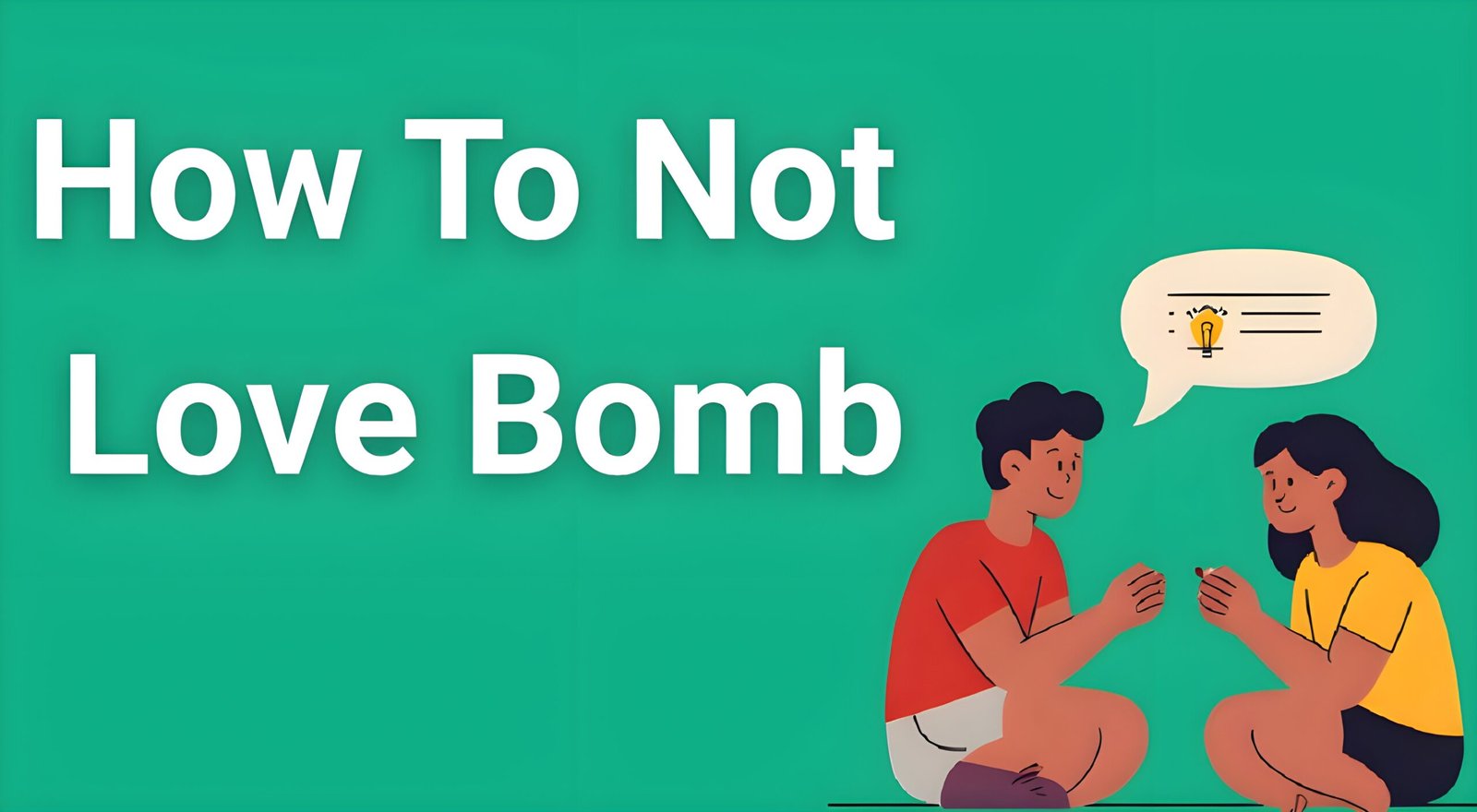Love bombing feels intoxicating at first—the constant attention, lavish gifts, and promises of forever. But learning how to stop love bombing, whether you’re experiencing it or realizing you’re doing it yourself, is crucial for your mental health and relationships. This manipulative behavior affects millions of people and creates lasting psychological damage that goes far beyond the initial “honeymoon” phase.
Recent psychological research reveals that love bombing isn’t just overwhelming affection—it’s a calculated manipulation tactic that creates trauma bonds stronger than cocaine addiction. Understanding the science behind these behaviors and implementing proven recovery strategies can help you break free from this destructive cycle and build genuinely healthy relationships.
What is Love Bombing?
Love bombing represents a form of psychological manipulation where someone overwhelms their target with excessive attention, affection, and grand gestures. Unlike genuine romantic interest, love bombing serves a specific purpose: gaining control over another person through manufactured intimacy and emotional dependency.
Psychology Today defines love bombing as “an attempt to influence another person with over-the-top displays of attention and affection.” This behavior typically occurs during the early stages of relationships, though it can resurface during reconciliation attempts or when the manipulator senses their control slipping.
The key distinction between authentic romantic enthusiasm and love bombing lies in the underlying intention. Genuine affection respects boundaries and develops naturally over time. Love bombing, however, deliberately pushes past comfort zones to create artificial closeness and emotional obligation.
The Love Bombing Cycle
Love bombing follows a predictable three-phase pattern that therapists and researchers have extensively documented:
Phase 1: Idealization – The love bomber presents themselves as your perfect match, showering you with attention, gifts, and declarations of destiny. They mirror your interests, values, and dreams while positioning themselves as your soulmate.
Phase 2: Devaluation – Once emotional investment is secured, the love bomber begins withdrawing affection, introducing criticism, and implementing control tactics. The victim often attributes this shift to their own shortcomings.
Phase 3: Discard/Hoover – The relationship ends abruptly, only for the love bomber to return with renewed intensity when they need validation or see their target moving forward independently.
The Science Behind Love Bombing
Understanding how love bombing affects your brain chemistry explains why these relationships feel so addictive and why traditional advice like “just leave” often fails. Neuroscience research demonstrates that love bombing literally rewires your brain’s reward pathways through a process called intermittent reinforcement.
Neurological Impact
When someone love bombs you, your brain releases powerful neurochemicals including dopamine, oxytocin, and serotonin. This chemical cocktail creates feelings of euphoria, attachment, and dependency. The subsequent withdrawal of affection triggers your brain’s threat detection systems, releasing stress hormones like cortisol and adrenaline.
This push-pull dynamic creates what psychologists call a “trauma bond“—a neurological attachment that develops between an abuser and victim through cycles of abuse followed by affection. Research published in the Journal of Personality and Social Psychology found that intermittent reinforcement (unpredictable rewards and punishments) creates stronger behavioral conditioning than consistent positive reinforcement.
Psychological Vulnerabilities
A study of 484 young adults identified key factors that make individuals susceptible to love bombing:
- Low self-esteem and insecure attachment styles
- Recent emotional trauma or life transitions
- Social isolation or loneliness
- Previous experience with emotional neglect
- High empathy and people-pleasing tendencies
Understanding these vulnerabilities doesn’t imply blame—rather, it provides insight into why intelligent, capable people can become trapped in manipulative relationships.
Signs You’re Being Love Bombed
Recognizing love bombing requires looking beyond surface-level romantic gestures to identify underlying manipulation patterns. These behaviors often feel overwhelming despite seeming positive.
Early Warning Signs
Excessive Communication – They contact you constantly throughout the day, expect immediate responses, and become upset when you’re unavailable. This isn’t loving attention—it’s monitoring and control disguised as care.
Premature Intensity – Within days or weeks, they’re discussing your future together, using terms like “soulmate,” and pressuring you toward exclusivity. Healthy relationships develop gradually with mutual consent.
Boundary Violations – They consistently push past your stated limits, whether regarding physical intimacy, time commitments, or personal space. When you protest, they reframe resistance as evidence that you don’t care about them.
Isolation Tactics – They subtly discourage relationships with friends and family, creating drama around your other commitments, or positioning themselves as the only person who truly understands you.
Advanced Manipulation Techniques
Future Faking – Making elaborate promises about your shared future (moving in together, marriage, children) without following through on smaller commitments. This keeps you invested in potential rather than present reality.
Love Languages Weaponization – They discover your primary love language and overwhelm you with those specific gestures, creating artificial intimacy and emotional debt.
Mirror Syndrome – They claim to share all your interests, values, and goals with suspicious accuracy. This manufactured compatibility masks their true personality.
How to Stop Love Bombing When You’re the Victim
Breaking free from love bombing requires both practical strategies and internal healing work. The following approaches address both immediate safety and long-term recovery.
Immediate Protection Strategies
Implement Communication Boundaries – Establish specific times for contact and stick to them. Love bombers often use constant communication to maintain control and prevent clear thinking. Designate phone-free hours and resist the urge to respond immediately to messages.
Slow Down the Relationship Pace – Insist on taking time to know each other properly before making commitments. Refuse pressure to become exclusive, move in together, or make major decisions quickly. Healthy partners will respect your timeline.
Maintain Independent Activities – Keep your hobbies, friendships, and personal goals regardless of their protests. Love bombers typically try to become your entire world, leaving you isolated and dependent.
Trust Your Instincts – That uncomfortable feeling you’re trying to rationalize away? Listen to it. Your intuition often recognizes manipulation before your conscious mind does.
Document and Validate Your Experience
Many love bombing victims experience gaslighting that makes them question their perceptions. Keep a private journal documenting interactions, including date, time, and your emotional response. This external validation becomes crucial when they later deny or minimize their behavior.
Create a Reality Check System – Share your concerns with trusted friends or family members who can provide objective perspective. Love bombers often isolate their targets from outside viewpoints that might expose their manipulation.
Breaking the Trauma Bond
The neurological addiction created by love bombing requires more than willpower to overcome. You’re essentially withdrawing from a powerful drug—the intermittent reinforcement of affection and attention.
For those struggling with the compulsive behaviors that trauma bonds create—like obsessively checking their social media or repeatedly breaking no-contact—specialized recovery programs can provide structure during this vulnerable period. The addiction-like pull toward someone who hurts you isn’t weakness; it’s brain chemistry that requires specific intervention strategies.
How to Stop Love Bombing if You’re Doing It
Self-awareness represents the first step toward changing manipulative behavior patterns. Many people engage in love bombing unconsciously, driven by their own insecurities and attachment wounds.
Recognizing Your Own Patterns
Anxiety-Driven Behavior – Do you feel compelled to constantly reassure yourself of your partner’s feelings? Are you overwhelmed by fear that they’ll leave unless you prove your worth through grand gestures?
Control Through Giving – Do you use gifts, compliments, or attention as currency to influence your partner’s behavior? Are you keeping score of what you’ve done for them?
Intensity Over Intimacy – Do you mistake overwhelming someone with genuine connection? Are you more focused on how your gestures appear than how they make your partner feel?
Developing Emotional Regulation
Identify Your Triggers – What situations or feelings prompt love bombing behavior? Common triggers include perceived rejection, your partner spending time with others, or feeling insecure about the relationship’s future.
Practice Distress Tolerance – Learn to sit with uncomfortable emotions without immediately acting to relieve them through love bombing. This might involve mindfulness techniques, breathing exercises, or temporary distraction strategies.
Build Self-Worth Independently – Love bombers often depend on their partner’s positive response for self-esteem regulation. Developing internal validation reduces the compulsive need to overwhelm others with attention.
Communication and Boundary Skills
Ask Before Giving – Before planning surprise gifts or grand gestures, check whether your partner wants them. Healthy giving considers the recipient’s preferences, not just your desire to give.
Respect “No” Immediately – When your partner sets a boundary or says no to something, accept it without arguing, negotiating, or emotional manipulation. Their right to personal autonomy doesn’t depend on your feelings about it.
Practice Emotional Validation – Instead of trying to “fix” your partner’s negative emotions with overwhelming positivity, learn to simply acknowledge and support them through difficult feelings.
Recovery and Healing After Love Bombing
Recovering from love bombing—whether as victim or perpetrator—requires addressing the underlying trauma and attachment wounds that made these dynamics possible. This healing process takes time and often benefits from professional support.
Understanding Your Attachment Style
Love bombing both exploits and creates insecure attachment patterns. Victims often develop anxious attachment from the unpredictable reinforcement, while perpetrators frequently have anxious or disorganized attachment driving their controlling behavior.
Secure attachment develops through consistent, responsive relationships where both partners can be authentic without fear of abandonment or engulfment. This becomes your recovery goal—not just avoiding love bombing, but building the capacity for genuine intimacy.
Trauma-Informed Recovery
The psychological impact of love bombing extends beyond the relationship itself. Many survivors report symptoms similar to PTSD, including hypervigilance in new relationships, emotional flashbacks, and difficulty trusting their own perceptions.
If you’re finding it difficult to move forward despite understanding what happened, personalized analysis can help you understand the specific manipulation tactics used against you and develop targeted healing strategies. Getting expert validation of your experience often provides the clarity needed to begin genuine recovery.
Rebuilding Your Identity
Love bombing deliberately dismantles your sense of self, replacing your authentic identity with whoever the manipulator needs you to be. Recovery involves rediscovering who you are outside of that relationship dynamic.
Reconnect with Pre-Relationship Interests – What did you enjoy before this relationship? Who were you when you felt most authentic? These aspects of yourself likely still exist beneath the conditioning.
Practice Making Independent Decisions – Start with small choices and gradually work toward larger ones. Love bombing victims often lose confidence in their decision-making abilities.
Develop Internal Validation – Learn to recognize your own worth without external confirmation. This might involve therapy, meditation, journaling, or other self-reflection practices.
Building Healthy Relationships
Understanding how to stop love bombing ultimately leads to recognizing what healthy relationships actually look like. Many people mistake intensity for intimacy because they’ve never experienced secure attachment.
Green Flags vs. Red Flags
Healthy Romantic Interest develops gradually, respects boundaries, and maintains consistency between words and actions. Partners encourage your independence, support your existing relationships, and can tolerate your authentic feelings—including negative ones.
Love Bombing feels urgent, overwhelming, and too good to be true. It often involves pressure, boundary violations, and dramatic shifts between idealization and devaluation.
Pacing and Boundaries
Healthy relationships unfold at a comfortable pace for both people. There’s no rush to define the relationship, make commitments, or share intimate details. Both partners feel free to maintain their individual lives while gradually building something together.
Setting and maintaining boundaries becomes essential for anyone recovering from love bombing experiences. This includes communicating your needs clearly, saying no without extensive justification, and prioritizing your own wellbeing.
Building Emotional Intelligence
Recovery from love bombing often involves developing better emotional awareness—both of your own feelings and others’ motivations. This includes learning to differentiate between genuine care and manipulation, recognizing when someone’s behavior doesn’t match their stated intentions.
Frequently Asked Questions
How long does love bombing typically last?
Love bombing can last anywhere from a few weeks to several months, depending on how quickly the target becomes emotionally invested. The behavior typically shifts once the victim is sufficiently attached and dependent.
Can someone love bomb without realizing it?
Yes, some people engage in love bombing behavior unconsciously, driven by anxiety, insecurity, or learned relationship patterns. However, the impact on the recipient remains harmful regardless of intent.
Is it possible to have a healthy relationship with someone who has love bombed before?
Recovery is possible but requires the love bomber to acknowledge their behavior, understand its impact, and commit to ongoing therapy or behavior change work. Most relationships damaged by love bombing cannot be repaired.
How do I know if someone’s affection is genuine or love bombing?
Genuine affection respects your boundaries, develops at a comfortable pace, remains consistent over time, and doesn’t come with conditions or expectations. Love bombing feels overwhelming, pushy, and often includes subtle threats of withdrawal.
What’s the difference between love bombing and being genuinely excited about someone?
Authentic excitement includes respect for the other person’s autonomy, comfort with their independent life, and patience with relationship development. Love bombing prioritizes the giver’s needs over the recipient’s comfort.
Can therapy help someone who love bombs others?
Yes, therapy can be very effective for people who engage in love bombing, particularly approaches that address attachment trauma, emotional regulation, and healthy relationship skills.
Conclusion
Learning how to stop love bombing requires understanding that this behavior represents manipulation, not love. Whether you’re escaping someone else’s love bombing or recognizing these patterns in yourself, recovery is possible with the right knowledge and support.
The science-based strategies outlined here address both the neurological addiction created by trauma bonds and the practical steps needed to build healthier relationship patterns. Remember that healing takes time, and seeking professional support can accelerate your recovery process.
Your worth isn’t determined by someone else’s ability to overwhelm you with attention, nor do you need to manipulate others to earn their love. Healthy relationships develop through mutual respect, genuine compatibility, and the gradual building of trust over time.

